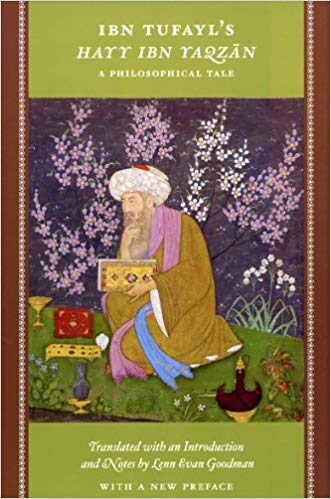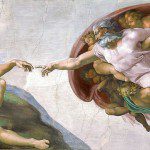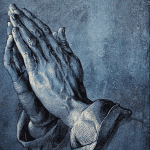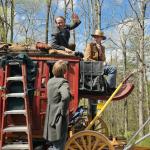
One of the classes that I’m teaching this term is Middle East Studies (Arabic) 467R, which is also listed as Philosophy 360R. The first book that we’re reading for the class is Lenn Evan Goodman, Ibn Tufayl’s Hayy ibn Yaqzan: A Philosophical Tale (Chicago and London: The University of Chicago Press, 2009), where we’re focusing on the translation of a wonderful Andalusian text from the twelfth century.
It’s an Islamicate Neoplatonic work, which means that it’s quite different in crucial ways from philosophy as philosophy is currently taught in western academia.
The ultimate goal for Ibn Tufayl and likeminded philosophers wasn’t the analysis of propositions (in the manner of contemporary analytic philosophy), nor even the amassing of syllogisms in physics and metaphysics leading to discussions of God, important though such syllogisms and their mastery were.
The end goal is direct intuition of, even union with, the divine. Ibn Tufayl refers to this experience using various terms, such as “ecstasy” and “intimacy.”
Here’s a good passage on the subject, in which the term apprehension is used to denote not “anxiety” but “understanding” or intellectual/spiritual “grasp”:
Now these states, as Avicenna describes them, are reached not by theorizing, syllogistic deductions, postulating premises and drawing inferences, but solely by intuition. If you wish an analogy to make clear the difference between this sort of apprehension and all others, imagine a child, growing up in a certain city, born blind, but otherwise intelligent and well endowed, with a sound memory and an apt mind. Through his remaining channels of perception he will get to know the people as well as all sorts of animals and objects, and the streets and alleys, houses and markets — eventually well enough to walk through the city without a guide, recognizing at once everyone he meets. But colors, and colors alone, he will know only by descriptive explanations and ostensive definitions. Suppose after he had come this far, his eyesight were restored and he could see. He would walk all through the town finding nothing in contradiction to what he had believed, nor would anything look wrong to him. The colors he encountered would conform to the guidelines that had been sketched out for him. Still there would be two great changes, the second dependent on the first: first the daybreak on a new visual world, and second, his great joy. (97)
















